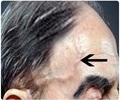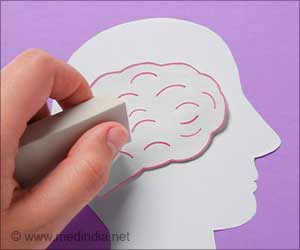Childhood trauma, like abuse and neglect, may raise the risk of adult headache disorders. Explore the findings and implications.
- A meta-analysis highlights the association between traumatic childhood events (abuse, neglect, dysfunction) and adult headache disorders, including migraine, tension, cluster, and chronic headaches
- Individuals who experienced one or more traumatic events in childhood were at a significantly higher risk of developing headache disorders in adulthood, with the number of events correlating with increased risk
- The study categorizes childhood traumas into "threat" and "deprivation" traumas, revealing the distinct impact of various types of traumatic experiences on adult headache risk
Trauma in childhood may increase risk of adult headache disorders
Go to source). This study does not prove that such events cause headaches; rather, it demonstrates an association.
Childhood Trauma Linked to Headache Disorders in Adulthood
“Traumatic events in childhood can have serious health implications later in life,” said study author Catherine Kreatsoulas, Ph.D., of Harvard T.H. Chan School of Public Health in Boston, Massachusetts. “Our meta-analysis confirms that childhood traumatic events are important risk factors for headache disorders in adulthood, including migraine, tension headaches, cluster headaches, and chronic or severe headaches. This is a risk factor that we cannot ignore.”Number of Traumatic Childhood Events Increases the Likelihood of Headaches
Of the total number of individuals, 48,625 (31%), reported at least one traumatic childhood experience, and 24,956 (16%), were diagnosed with primary headaches. A primary headache problem was diagnosed in 26% of participants who experienced at least one traumatic childhood incident, compared to 12% of those who had no traumatic childhood events. Researchers discovered that those who had experienced one or more traumatic childhood events were 48% more likely to have headache disorders than those who had not. They also discovered that the number of traumatic childhood events enhanced the likelihood of developing headaches. People who had experienced one type of traumatic event had a 24% increased risk of a headache disorder when compared to people who had not experienced childhood trauma, while people who had experienced four or more types of traumatic events were more than twice as likely to have a headache disorder.Threat Trauma Poses the Greatest Risk for Headaches
Researchers also investigated the relationship between different types of stressful childhood occurrences. Physical abuse, sexual abuse, emotional abuse, witnessing and/or fear of violence, or major family problems were all classified as threat traumas. Neglect, economic adversity, having an incarcerated household member, divorce or separation, parental death, and living in a household with mental illness, chronic disability or disease, or alcohol or substance addiction were all classified as deprivation traumas.They discovered that threat traumas were associated with a 46% rise in headaches, while deprivation traumas were associated with a 35% increase in headaches. Among the main forms of threat traumas, physical and sexual abuse was associated with a 60% greater risk of headache disorders; among deprivation traumas, neglect in childhood was associated with a nearly three-fold increased risk of headache disorders.
“This meta-analysis highlights that childhood traumatic events categorized as threat or deprivation traumas are important and independent risk factors for headache disorders in adulthood,” said Kreatsoulas. “Identifying the specific types of childhood experiences may help guide prevention and treatment strategies for one of the leading disabling disorders worldwide. A comprehensive public health plan and clinical intervention strategies are needed to address these underlying traumatic childhood events. It is important to note that the true estimate of the association is likely higher due to the sensitive nature of reporting childhood traumatic events.”
Reference:
- Trauma in childhood may increase risk of adult headache disorders - (https://www.hsph.harvard.edu/news/hsph-in-the-news/trauma-in-childhood-may-increase-risk-of-adult-headache-disorders/)
Source-Medindia
















